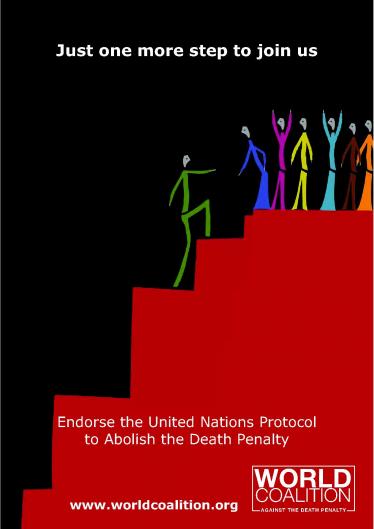World Coalition calls on Liberia to regain its leading abolitionist role
Protocol
Last July, Liberia passed legislation that made armed robbery resulting in death a crime punishable by death. The news shocked the international abolitionist community as it came from a state considered to be party to the UN’s Second Optional Protocol to the ICCPR, an international treaty that abolishes capital punishment definitively.
According to UN documents, Liberia became a state party to the Protocol through accession, i.e. a commitment from the government that does not require confirmation from the Parliament. This, however, is not the opinion of some Liberian political parties, which led a powerful campaign in favour of the death penalty to combat the country’s rising crime problem earlier this year.
Legal analysis by Justice Minister Philip Banks now shows that there was a recognized parliamentary assembly in place at the time of the accession and that the Second Optional Protocol does not bind Liberia in international law as long as its participation is not ratified by lawmakers.
When opposition MPs secured a majority in favour of death penalty legislation and asked President Ellen Johnson Sirleaf to sign it into law, she could therefore not use the Protocol to block it. “Such deviation by the President from the Constitution and an effective infringement on the prerogatives of the Legislature could prompt legislative backlash and could even cause some persons to advocate impeachment”, Minister Banks argued. “A nation just out of war and still in the infancy of the process of healing can ill afford the luxury of such a process”, he added.
A right to commute or pardon death sentences
However, the minister also pointed out that the President has a constitutional right to commute or pardon every death sentence. President Sirleaf has publicly stated her opposition to the death penalty and she reaffirmed her opposition to it in a meeting with law professor Speedy Rice. Rice travelled to Monrovia earlier this month and met with her on behalf of the World Coalition.
The President will hopefully follow into the footsteps of her forerunners, who commuted all death sentences and enforced a de-facto moratorium even before the country signed the Second Optional Protocol.
Following Rice’s visit to Monrovia, the World Coalition will send a follow-up letter to President Sirleaf. “We are encouraging Liberia to ratify the Second Optional Protocol in accordance with its Constitution and to take the lead of African abolitionist countries again”, Prof Rice said. “We can provide assistance by organising seminars, etc.”, he added.
Having met President Sirleaf and Minister Banks as well as the Solicitor General, Rice hopes that the government will submit a ratification bill during the next parliamentary session, which starts in early 2009. “It will not be until next spring or summer, but we can hope for next year”, he said.
As a first step, the World Coalition currently calls on Liberia to vote in favour of the UN resolution calling for a global moratorium on the death penalty, which will be debated at the UN General Assembly in the coming weeks.






